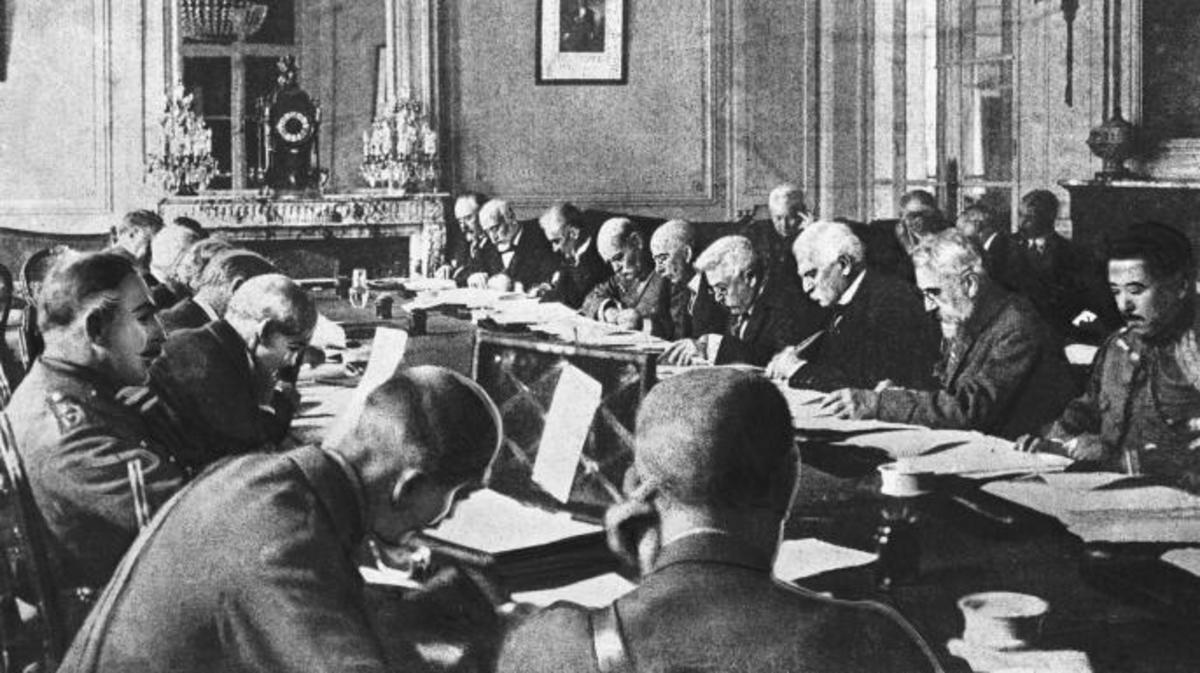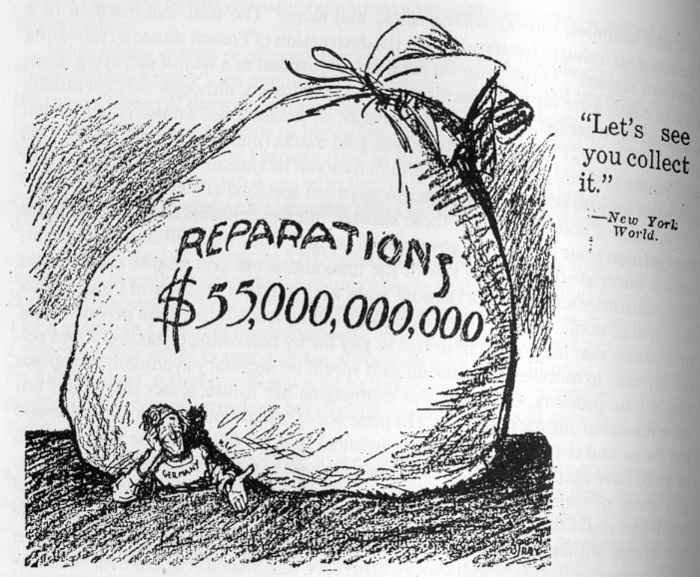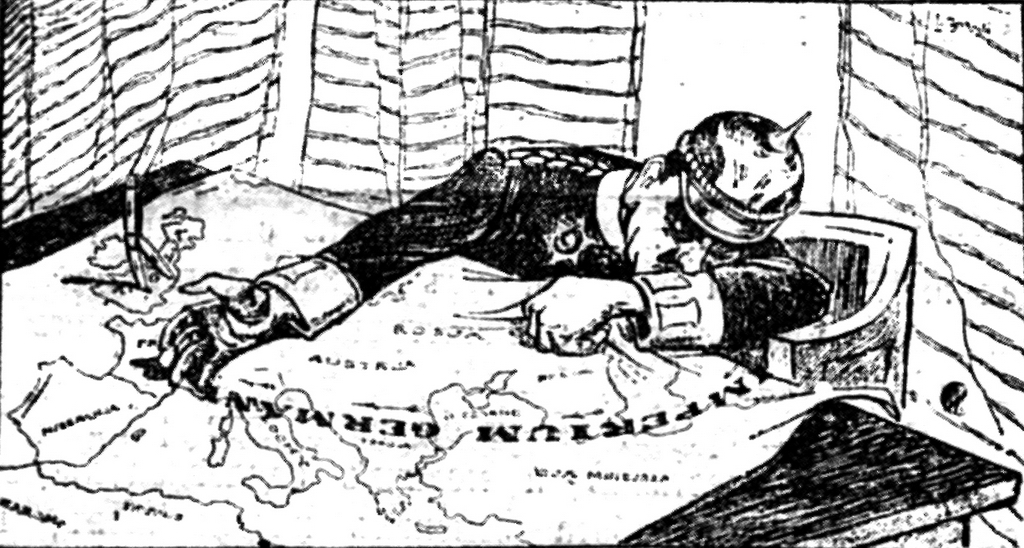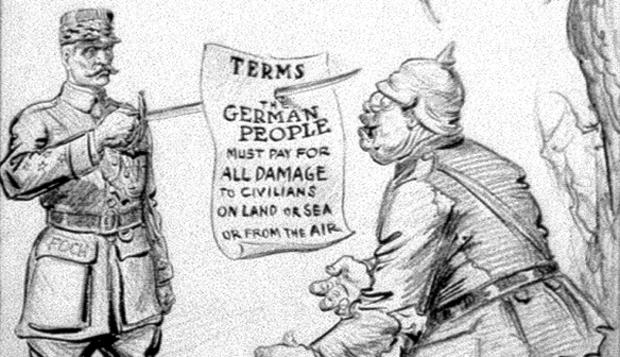Fears of Communist Takeover in Germany.
The Chief Obstacle: Wilson Himself.
Disagreement Over Who Started the War
Special to The Great War Project
(30 April) It’s April in Paris and by this time a century ago, the peace conference is lurching toward its finale.
So reports historian Thomas Fleming.
“The treaty had to be finished without further delay, or galloping Bolshevism would swallow Germany.”
“The swarms of experts were told to finalize everything and a message was sent to the Germans telling them to send representatives to Versailles on April 25th “for the purpose of receiving the text of the preliminaries of the treaty as drawn up by the Allies and Associated Powers.”

The Versailles peace conference
The Big Four (Britain, France, Italy and the U.S.) now turned their attention to a treaty with Austria-Hungary, a job that could be compared, in historian Fleming’s view, to putting together pieces of a dropped puzzle.
Here Wilson confronted another dismaying problem. The French, still obsessed by their fear of Germany, were unilaterally turning the states born of the break-up of the Austro-Hungarian and Russian empires into military satellites on Germany’s borders.
“French officers and weaponry,” reports Fleming, “poured into Poland, Czechoslovakia, and Romania,” not to speak of the enormous numbers of troops as well deploying from those newly minted states.”
The British Prime Minister, David Lloyd George, was overheard denouncing Europe’s small states as “troublemakers and expensive in the bargain.”
“The prime minister assailed “the monstrous demands of Czechoslovakia” as typical of the miserable demands of the small states.
“Meanwhile,” reports Fleming,..
“the draft of the final peace treaty was in frantic progress. Staffers toiled on technicalities and wording. Other bureaucrats scurried around Paris to find out what had been decided about Poland’s claims to Upper Silesia and similar matters.”
Fleming goes on: “When it came to the section on reparations they discovered that no one, including Woodrow Wilson, had paid serious attention to a decision to preface it with a statement asserting that Germany was responsible for starting the war.
“To the British and the French, this was an article of faith of course. Their propaganda had repeated it almost every day for four years.

The Kaiser’s threats.
“But Wilson was on record as saying no one – or everyone – was responsible.”
“On the face of it,” writes historian Fleming, “the accusation was bizarre. No one claimed that the Germans had shot Archduke Franz Ferdinand and his wife in Sarajevo in 1914, nor that this murder of the crown prince of Germany’s chief ally did not have a great deal to do with precipitating the conflict.”
The war guilt clause pretended this central event never happened.

The war guilt clause.
“Instead the document curtly demanded that Germany acknowledge its responsibility “for causing all the loss and damage to which the Allied and Associated governments have been subjected as a consequence of the war imposed on them by the aggression of Germany and its allies.”
“Compounding the irony, this statement was written by a former Wilson pupil at Princeton (and future secretary of state) John Foster Dulles.”
